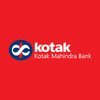Internal Auditor
100+ Internal Auditor Interview Questions and Answers

Asked in Vadilal Industries

Q. What is the Purchase to Pay process, and what steps did you take during your P2P audit process?
Purchase to pay process is the cycle of activities from procurement to payment of goods or services.
Procurement of goods or services
Receiving and verifying the goods or services
Matching the invoice with the purchase order and goods receipt
Approval of the invoice
Payment to the supplier
Recording the transaction in the accounting system
Periodic review of the process for improvement
Example: A company orders office supplies, receives them, matches the invoice with the purchase ord...read more

Asked in Genpact

Q. What do clients expect from consultancy firms regarding internal audits?
Clients expect consultancy firms to provide expertise, objectivity, efficiency, and value in internal audit services.
Expertise in industry best practices and regulations
Objectivity in assessing risks and controls
Efficiency in conducting audits and delivering timely reports
Value in providing actionable recommendations for improvement
Examples: detailed audit plans, thorough risk assessments, clear communication of findings
Internal Auditor Interview Questions and Answers for Freshers

Asked in Grant Thornton

Q. what is the purpose of financial statements and what encloses in f.s and what is purpose of trial balances
Financial statements provide a snapshot of a company's financial health, including assets, liabilities, and equity. Trial balances ensure accuracy of financial records.
Financial statements serve to provide stakeholders with an overview of a company's financial performance and position.
Components of financial statements include balance sheet, income statement, cash flow statement, and statement of changes in equity.
Balance sheet shows assets, liabilities, and equity at a speci...read more

Asked in Vadilal Industries

Q. What is DOA? How to prepare DOA ?Have you ever prepared a SOP if yes than steps to prepare SOP?
DOA stands for Delegation of Authority. It is a document that outlines the level of authority and responsibility of an individual within an organization.
DOA is prepared by identifying the roles and responsibilities of individuals within an organization
It should clearly define the limits of authority for each individual
DOA should be reviewed and updated regularly to ensure it remains relevant
SOP stands for Standard Operating Procedure and is a document that outlines the steps ...read more

Asked in Genpact

Q. What are the key risk areas, and can you explain them?
Key risk areas for an internal auditor include fraud, compliance, operational, financial, and cybersecurity risks.
Fraud risk: Misappropriation of assets, financial statement fraud, corruption.
Compliance risk: Failure to comply with laws and regulations, industry standards.
Operational risk: Inefficiencies, errors, lack of internal controls.
Financial risk: Mismanagement of funds, inaccurate financial reporting.
Cybersecurity risk: Data breaches, hacking, ransomware attacks.

Asked in ESAF CO-OPERATIVE

Q. What is the difference between internal audit and external audit?
Internal audit is conducted by employees of the organization, while external audit is conducted by independent professionals.
Internal audit is performed by employees of the organization, while external audit is performed by independent professionals.
Internal audit focuses on evaluating and improving internal controls, risk management, and operational efficiency within the organization.
External audit focuses on providing an independent opinion on the accuracy and fairness of t...read more
Internal Auditor Jobs




Asked in Genpact

Q. What can affect the Test of Design (TOD) and Test of Effectiveness (TOE) of controls?
Various factors such as changes in regulations, technology, business processes, and personnel can affect the design and operating effectiveness of controls.
Changes in regulations can impact the design and operating effectiveness of controls by requiring updates to comply with new laws or standards.
Advancements in technology may render existing controls obsolete or ineffective, necessitating enhancements or replacements.
Changes in business processes can affect the relevance an...read more

Asked in Genpact

Q. What is a test of effectiveness and design?
Test of effectiveness and design is a process used to evaluate the efficiency and adequacy of controls in place.
Test of effectiveness assesses whether controls are operating as intended.
Test of design evaluates the adequacy of controls to address risks.
Examples include testing the effectiveness of access controls by attempting unauthorized access, and testing the design of segregation of duties controls by reviewing job responsibilities.
Results of these tests help identify we...read more
Share interview questions and help millions of jobseekers 🌟


Asked in Grant Thornton

Q. What is your understanding of an audit?
Audit is a systematic examination of financial records, statements, or operations to ensure accuracy and compliance with laws and regulations.
Audit involves reviewing financial records, statements, or operations
It aims to ensure accuracy, compliance with laws and regulations, and identify any discrepancies or fraud
Auditors gather evidence, analyze data, and report findings to stakeholders
Types of audits include financial audit, operational audit, compliance audit, and forensi...read more

Asked in Mahanadi Coalfields

Q. What is the Wages Bill Amendment Act, and what are the recent amendments to it?
The Wages Bill Amendment Act is a law that regulates the payment of wages to workers in India.
The act was first introduced in 1948 and has been amended several times since then.
The latest amendment was made in 2017 and introduced the concept of a 'universal minimum wage'.
The amendment also made it mandatory for employers to pay wages electronically, unless the employee requests otherwise.
The act covers all workers in India, including those in the organized and unorganized sec...read more


Q. golden ratio GST difference between p&l and Balance sheet
The question is asking for the difference between P&L and Balance Sheet and the concept of golden ratio GST.
P&L shows the company's revenue and expenses over a period of time, while the balance sheet shows the company's assets, liabilities, and equity at a specific point in time.
Golden ratio GST is a mathematical concept used to determine the optimal tax rate for maximum revenue.
P&L is used to determine the company's profitability, while the balance sheet is used to determine...read more

Asked in Keertana Finserv

Q. 1. How to find out gold 22 and 20 carrot Ans. Every gold carrot checking two types of method 1. Check the rebu black stone gold after nitric acid, and crystal solt it's check the gold 2. Every all marks is not...
read moreTo determine the purity of gold, one can use methods such as checking for the presence of black stone residue after nitric acid testing and examining the crystal salt formation.
Check for black stone residue after nitric acid testing
Examine crystal salt formation
Look for purity marks on the gold, such as numbers and symbols


Q. How would you improve E-commerce?
Improving E-commerce through personalized experiences, streamlined checkout process, and enhanced security measures.
Implement personalized product recommendations based on user browsing and purchase history
Simplify checkout process with one-click payment options and guest checkout
Enhance security measures with two-factor authentication and fraud detection technology
Offer flexible delivery options such as same-day or next-day delivery
Provide excellent customer service through ...read more

Asked in Grant Thornton

Q. what is depreciation and %s of some product does land get depriciated journal entries
Depreciation is the allocation of the cost of a tangible asset over its useful life. Land does not depreciate.
Depreciation is a non-cash expense that reflects the decrease in value of an asset over time.
It is calculated using methods such as straight-line, double declining balance, or units of production.
Land is not depreciated because it is considered to have an indefinite useful life.
Journal entries for depreciation involve debiting Depreciation Expense and crediting Accumu...read more

Asked in Muthoot Fincorp

Q. Brs,accounting entry, what is audit, what is internal control
BRS is bank reconciliation statement, accounting entry is a record of financial transaction, audit is an independent examination of financial records, internal control is a process to ensure efficient and effective operations.
BRS is prepared to reconcile the bank balance as per the bank statement with the balance as per the company's books
Accounting entry is a record of financial transaction that shows the debit and credit aspects of the transaction
Audit is an independent exa...read more

Asked in Laurus Labs

Q. Have you handled any market complaints pertaining to count variation in a bottle line in the past? If yes, please elaborate.
Yes, I have handled market complaints regarding count variations in bottle lines, ensuring quality control and customer satisfaction.
Received a complaint about a batch of bottles containing fewer units than labeled.
Conducted an investigation by reviewing production logs and quality checks.
Identified a malfunction in the counting machine that led to discrepancies.
Implemented corrective actions, including recalibrating the machine and retraining staff.
Communicated with the cust...read more

Asked in Aadhar Housing Finance

Q. What are three critical areas to cover in an internal audit of home loans?
3 critical areas to cover in internal audit of home loans
Compliance with regulations and policies
Accuracy of loan documentation and data
Effectiveness of risk management practices

Asked in Koch Business Solutions

Q. How do you address the perception that auditing is solely a fault-finding mechanism?
As an internal auditor, I would address the staff's perception by emphasizing the positive aspects of auditing and promoting a collaborative approach.
Explain the purpose of auditing as a means to identify areas of improvement and ensure compliance with regulations.
Highlight the benefits of auditing, such as risk mitigation, process optimization, and enhancing organizational performance.
Encourage open communication and collaboration with staff to foster a positive audit cultur...read more

Asked in New Swan Group

Q. Can you share an example of a process improvement you implemented?
Implemented a streamlined invoice processing system that reduced approval time by 30%.
Identified bottlenecks in the existing invoice approval process.
Collaborated with the finance team to map out the workflow.
Introduced an automated system for invoice submissions and approvals.
Trained staff on the new system, ensuring smooth transition.
Monitored the process post-implementation, achieving a 30% reduction in approval time.

Asked in Mahanadi Coalfields

Q. Define fixed, regular, permanent, and contractual types of employment.
Fixed, regular, permanent, and contractual types of employment defined.
Fixed type employment refers to a job with a predetermined end date.
Regular type employment is a job with no predetermined end date and is ongoing.
Permanent type employment is a job that is expected to last indefinitely.
Contractual type employment is a job that is based on a specific contract or agreement.
Examples of fixed type employment include seasonal work or project-based work.
Examples of regular type...read more

Asked in Genpact

Q. What are the assertions, and can you explain them?
Assertions are the representations by management in financial statements regarding the accuracy and completeness of information.
Assertions include existence, completeness, rights and obligations, valuation or allocation, and presentation and disclosure.
Existence - assets and liabilities exist at a given date
Completeness - all transactions and accounts that should be included are included
Rights and obligations - entity has legal rights to assets and liabilities
Valuation or all...read more
Asked in Pyroguard Engineers

Q. How can job-wise information be reported to management by introducing systems in Tally?
Yes
Implementing a management information system in Tally
Creating customized reports and dashboards
Setting up automated alerts and notifications
Integrating Tally with other systems for seamless data flow
Regularly analyzing and presenting information to management

Asked in Ambit Collective

Q. You know Excel formula vlookup and how to use filter and tell me how it's work.
VLOOKUP is used to search for a value in a table and return a corresponding value. Filter is used to display only specific data based on criteria.
VLOOKUP searches for a value in the first column of a table and returns a value in the same row from a specified column.
Filter allows you to display only the rows that meet certain criteria, hiding the rest of the data.
Example: VLOOKUP formula =VLOOKUP(A2, Sheet2!A:B, 2, FALSE) - searches for the value in cell A2 in Sheet2 and retur...read more

Asked in Grant Thornton

Q. Tell me about some financial ratios and provide examples.
Ratios are used to analyze financial performance and efficiency of a company.
Profit Margin: Net income divided by total revenue, shows how much profit a company makes for every dollar of sales.
Current Ratio: Current assets divided by current liabilities, measures a company's ability to pay its short-term obligations.
Debt-to-Equity Ratio: Total debt divided by total equity, indicates the proportion of debt used to finance a company's assets.
Return on Investment (ROI): Net prof...read more

Asked in Vadilal Industries

Q. Have you conducted a stock audit, and are you prepared to perform it in cold storage?
I have conducted stock audits and am fully prepared to perform audits in cold storage environments.
Experience with Stock Audits: I have previously conducted stock audits in various settings, ensuring accurate inventory records.
Cold Storage Protocols: I am familiar with the specific protocols required for auditing stock in cold storage, such as temperature monitoring.
Inventory Management Systems: I have used inventory management systems that track stock levels in real-time, wh...read more

Asked in BDO India LLP

Q. Major observations during Articleship period
Learned about financial statement preparation, audit procedures, and client communication.
Assisted in the preparation of financial statements for clients
Conducted audit procedures such as testing internal controls and verifying account balances
Communicated with clients to gather necessary information and provide updates on audit progress
Learned about the importance of professional skepticism and attention to detail in auditing

Asked in Motilal Oswal Financial Services

Q. What is the difference between internal and statutory audits?
Internal audits are conducted by internal staff to evaluate and improve the effectiveness of risk management, control, and governance processes within an organization, while statutory audits are required by law and are conducted by external auditors to ensure compliance with financial reporting standards.
Internal audits are conducted by internal staff, while statutory audits are conducted by external auditors.
Internal audits focus on evaluating and improving risk management, ...read more

Asked in Motilal Oswal Financial Services

Q. What is the process of conducting an internal audit?
The process of conducting an internal audit involves planning, executing, reporting, and follow-up.
Plan the audit by defining objectives, scope, and methodology.
Gather relevant data and evidence through interviews, document reviews, and observations.
Analyze the data to identify risks, control weaknesses, and areas for improvement.
Report findings to management and recommend corrective actions.
Follow up on implementation of recommendations to ensure effectiveness.
Examples: Cond...read more

Asked in Laurus Labs

Q. Based on which guidelines is sample quality finalized, and how much should be collected?
Sample quality is determined by guidelines like ISO 9001, focusing on statistical methods and risk assessment for effective sampling.
ISO 9001: This standard provides a framework for quality management systems, emphasizing the importance of quality in sampling processes.
Statistical Sampling: Techniques such as random sampling or stratified sampling are used to ensure that the sample accurately represents the population.
Risk Assessment: Identifying potential risks in the sampli...read more
Asked in Autobahn Trucking Corporation

Q. Do you have any idea what type of auditing we do?
The type of auditing being done is likely internal auditing, focusing on evaluating and improving the effectiveness of risk management, control, and governance processes within the organization.
Internal auditing involves assessing and improving the effectiveness of risk management, control, and governance processes within an organization.
It helps in identifying areas of improvement and ensuring compliance with policies and regulations.
Examples of internal auditing activities ...read more
Interview Questions of Similar Designations
Interview Experiences of Popular Companies






Calculate your in-hand salary
Confused about how your in-hand salary is calculated? Enter your annual salary (CTC) and get your in-hand salary


Reviews
Interviews
Salaries
Users










